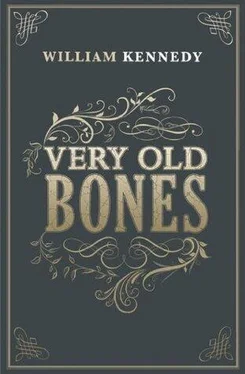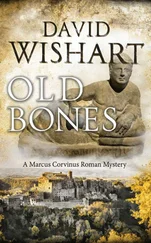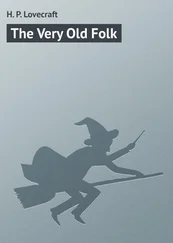Malachi did not yield to any fate. He labored ferociously and saved his money. And as he approached marriage he bought a small plot of country land on Staats Lane, a narrow and little-used road that formed a northern boundary of the vast Fitzgibbon (formerly Staats) estate, and built on it, with his own hands, the three-room cottage that measured seven long paces deep by nine long paces wide, the size of a devil’s matchbox. In 1882 Malachi moved into the cottage with his bride, the sweet and fair Lizzie Cronin, a first-generational child of Albany.
After five years the marriage was still childless, and Lizzie slowly taught herself to be a seamstress as a way of occupying her time, making clothing for herself and Malachi. But with so few neighbors she found other sewing work scarce, and her days remained half empty, with Malachi working long and erratic hours. And so Lizzie looked to the birds, the trees, the meadows of the Fitzgibbon estate, and the Staatskill, a creek with a panoramic cascade, churning waters, and placid pools, for her pleasure. Malachi saw his wife developing into a fey creature of the open air, an elfin figure given to the sudden eruption of melodies off her tongue that Malachi did not recognize. She began to seem like an otherworldly being to Malachi.
In the spring of 1887, two days after he lost his cow, the waters of the Hudson River, as usual, spilled over their banks and rose into the lumber mills, storage sheds, and piles of logs that were the elemental architecture of Sage’s lumber yard, where Malachi worked as a handler. One log slipped its berth in the rising waters, knocked Malachi down, and pinned his left shoulder against a pile of lumber, paralyzing his left arm and reducing the strength in his torso by half, perhaps more. So weakened was he that he could no longer work as a handler, that useless left arm an enduring enemy.
He found work one-handedly sickling field grass on the Fitzgibbon land, work that provided none of the fellowship that prevailed among lumber handlers. He worked alone, came home alone, brooded alone until the arrival of his wife, who grew more peculiar with every moment of Malachi’s increasing solitude. He topped her at morning, again at evening after she returned from her communion with the birds of the field, and he failed to create either new life in Lizzie or invincible erectness in himself.
To test himself against nature he sought out the woman known to the canalers and lumber handlers as the Whore of Limerick, her reputation as an overused fuckboat appealing to Malachi’s free-floating concupiscence. After several iniquitous successes that proved the problem existed wholly in Lizzie, Malachi abandoned the fuckboat and sought solace again in Lizzie’s embrace, which cuddled his passion and put it to sleep. He entered heavily into the drink then, not only the ale that so relieved and enlivened him, but also the potsheen that Crip Devlin brewed in his shed.
Drink in such quantity, a departure for Malachi, moved him to exotic behavior. He lay on his marriage bed and contemplated the encunted life. Cunt was life, he decided. Lizzie came to him as he entered into a spermatic frenzy, naked before her and God, ready to ride forever into the moist black depths of venery indeed even now riding the newly arrived body of a woman he had never seen, whose cunt changed color and shape with every nuance of the light, whose lewd postures brimmed his vessel. Ah love, ah fuckery how you enhance the imperial power of sin! When he was done with her, the woman begged for another ride, and he rode her with new frenzy; and when he was done again she begged again and he did her again, and then a fourth ride, and a fifth; and, as he gave her all the lift and pull that was left to him, his member grew bloody in his hand. When the woman saw this she vanished, and Lizzie wept.
The following morning, when he awoke, Malachi found not only his wife already gone from the house, he found himself also bereft of his privities, all facets of them, the groin of his stomach and thighs as hairless, seamless, and flat as those groins on the heavenly angels that adorned the walls of Sacred Heart Church. Here was a curse on a man, if ever a curse was. God was down on Malachi now — God, or the devil, one.
Malachi clothed himself, drained half a jug of potsheen, all he had, then pulled the bedcovers over his head. He would hide himself while he considered what manner of force would deprive a man not only of his blood kin, his strength, his labor, and his cow, but now, also, his only privities. He would hide himself and contemplate how a man was to go about living without privities; more important, he would think about ways of launching a counterattack on God, or the devil, or whoever had taken them, and he would fight that thief of life with all his strength to put those privities back where they belonged.
In the painting he called The Conspiracy , Peter Phelan created the faces of Malachi and Crip Devlin as they sit in Malachi’s primitive kitchen with their noses a foot apart, the condiments and implements of their plan on the table in front of them, or on the floor, or hanging over the fireplace. The bed is visible in the background, a crucifix on the wall above it.
Malachi is in a collarless shirt, waistcoat and trousers of the same gray tweed, and heavy brogans, his left arm hanging limp. Crip Devlin wears a cutaway coat in tatters, a wing collar too large for his neck, a bow tie awkwardly tied.
These men are only thirty-four and forty, Malachi the younger of the two, but they are portraits of psychic and physical trouble. Malachi’s face is heavily furrowed, his head an unruly mass of black curls, his black eyes and brows with the look of the wild dog in them. Crip is bald, with a perpetual frown of intensity behind his spectacles, a half-gray mustache, and sallow flesh. He is moving toward emaciation from the illness to which he has paid scant attention, for at this time he considers all trouble and trauma to be the lot of every man born to walk among devils.
Crip was in a late stage of his pox veneris, not knowing how close he was to death, when he brought his mystical prowess to bear on the lives of Lizzie and Malachi. He had studied for the priesthood briefly as a young man, and later taught primary school, but was unsuited for it, lacking in patience toward eight-year-old children who could not perceive the truth. In recent years he had worked as a lumber handler with Malachi, and in the winter they cut ice together on the river. But his disease in late months kept him from working and he lived off the sale of his homemade liquor, which, by common standards, was undrinkable, but had the redeeming quality of being cheap.
Crip had brought the recipe for the potsheen with him from Ireland, as he had brought his wisdom about the Good Neighbors, those wee folk who, he insisted, inhabited a hilly grove of sycamore trees and hawthorn bushes not far from Malachi’s cottage. Crip was a widower who lived with his nine-year-old daughter, Mab; and he taught her all the lore of the Good Neighbors that he himself had learned from his mother, who once kept one of the wee creatures (a flute player) in the house for six months, fed it bread and milk on a spoon, and let it sleep in the drawer with the knives and forks. And didn’t Crip’s mother have good luck the rest of her life for her generous act? Indeed she did.
When Malachi listened to Crip Devlin talk, something happened to his mind. He saw things he knew he’d never seen before, understood mysteries he had no conscious key to. When Crip stopped talking Malachi also felt eased, relieved to be back in his own world, but felt also a new effulgence of spirit, a potential for vigorous action that just might give back a bit of its own to the foul beast that was skulking so relentlessly after his body and his soul.
Читать дальше












